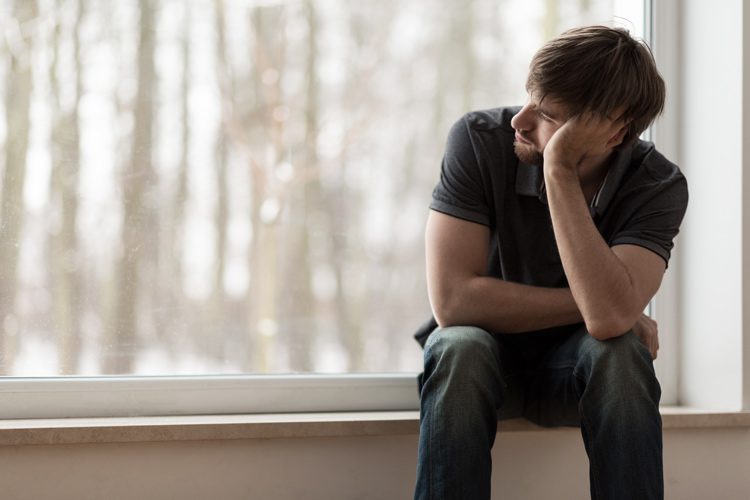It makes a certain kind of sense.
When we feel lonely, we imagine we’re the only person who feels that way. But of course that isn’t really the case. As The Beatles put it in “Eleanor Rigby,” “Ah, look at all the lonely people.”
It can be helpful to remember that even when we are experiencing feelings of loneliness, we aren’t really alone—not alone in having those feelings, but also not alone in reality. This can be hard to remember, especially if you are struggling with a substance use disorder.
Loneliness and substance use create a vicious cycle: You feel lonely, so you turn to drugs or alcohol to feel relief. But the substance use further isolates you, so you feel lonely more often. And the cycle repeats.
Similarly, if you are in recovery, avoiding loneliness is important for maintaining your sobriety. Overwhelming feelings of loneliness can undermine your recovery and start the cycle of substance use all over again.
Given all of this, it is important to have a plan for staving off those lonely feelings.
An Important Distinction: Being Alone and Feeling Lonely are not the Same
Some people naturally prefer periods of solitude, and there is no need to feel anxious if that describes you. Just because you like to be alone doesn’t mean that you must therefore be lonely. In fact, you might be among the many people who find alone time to be energizing.
So instead of worrying about your introverted tendency, just keep tabs on your emotions. If you start to feel negative emotions that seem to stem from isolation, take action.
Not Feeling Comfortable With People? Try a Pet – or a Plant
Pets offer loyal companionship and can help reduce feelings of loneliness. Caring for another life is a great way to discover more meaning in our own lives, and that, in turn, can help us feel less lonely. Getting a pet comes with a lot of responsibility and a fair amount of ongoing cost, but your new furry (or not so furry) companion may provide benefits that far exceed the trouble or expense.
Not ready for an animal? That’s okay. Believe it or not, caring for houseplants or tending a garden can increase your feelings of contentment and help you keep loneliness at bay.
Get Into the Group
When people in recovery think about groups, they often think of 12-step support groups. There is no doubt that your 12-step program offers social interaction and the power of shared experiences that may well help you avoid feeling alone. But groups made up of those in recovery are just one of many options for interacting with other people.
For example, you might enjoy working with the community theater—onstage or backstage. Or you might like to join an adult sports team. Happily, you can find them at just about any skill level, including the not-competitive-at-all. Or maybe your church (or other community of faith) is a good fit for you and can offer opportunities for fellowship. These ideas barely scratch the surface of all the possibilities for healthy social interaction.
Don’t feel as though you have to jump in all at once. Find a group of folks whose interests are similar to your own and see how it goes. As you get more comfortable, you may find a great and supportive group of friends who you always look forward to spending time with.
Repair Broken Relationships and Forge New Ones Through Service
Making amends to those who may have been hurt by your behavior is an important part of recovery. Not everyone will be open to resuming a relationship with you, but many people in your life will likely want to reconnect and move forward. Rekindling these broken relationships can do a lot to reduce not only feelings of loneliness but also feelings of guilt and regret. Mending your connections with others is likely to benefit you and those you reconnect with.
In addition to mending fences, you might consider building new relationships by volunteering for a cause that is important to you. Odds are there are many nonprofits—including arts organizations, charitable causes, crisis responders, and faith-based efforts—in your community that could use your help. Seeing others benefit from your service is a great way to be reminded that everyone feels lonely sometimes, but we can overcome that feeling—in ourselves and in others—when we give back.
Save Some of Your Kindness for Yourself
You might be feeling lonely because you are not taking good care of yourself. Don’t underestimate the importance of regular exercise, a nutritious diet, and healthy sleeping routines as ways to support your emotional and physical wellbeing. When you feel good—and good about yourself—you are less likely to experience feelings of inadequacy, and that can make it easier for you to spend time with others. Be a friend to yourself.
You Don’t Have to Go it Alone
At Wooded Glen Recovery Center, we are always here for you (or your loved ones). You are never alone when facing down a substance use disorder. We are ready to really listen so that we can personalize your treatment plan. And when rehab is finished, we’ll provide you with the help and resources you need to maintain your long term recovery. When you need us, we are always here to help.

